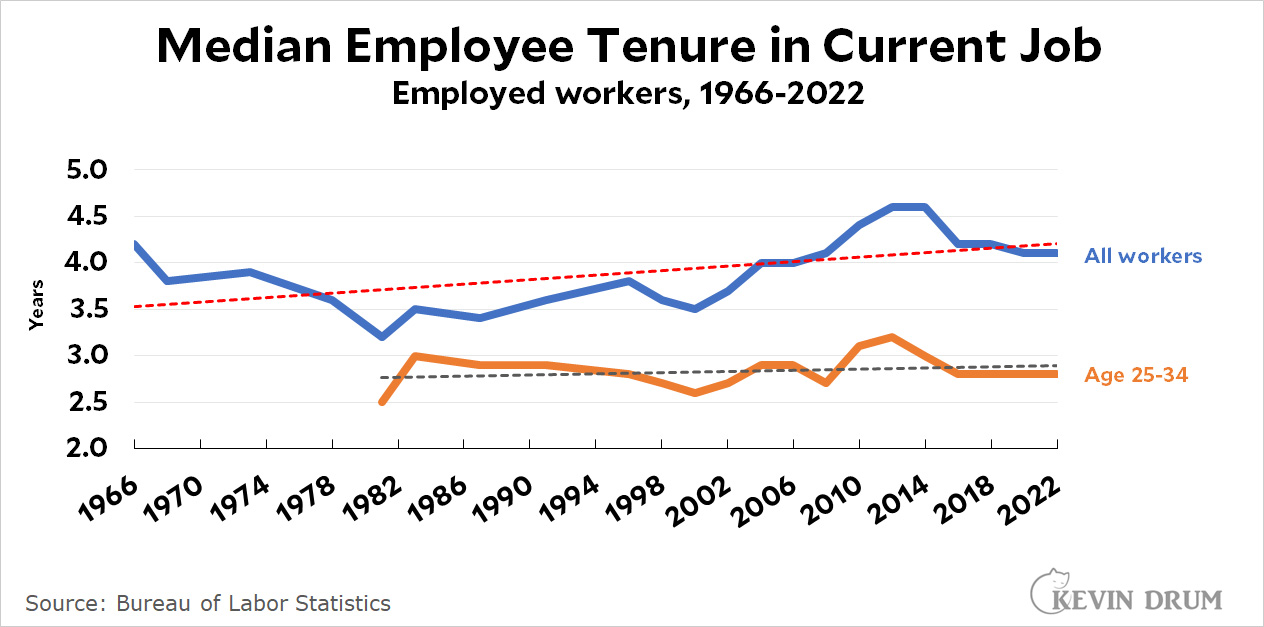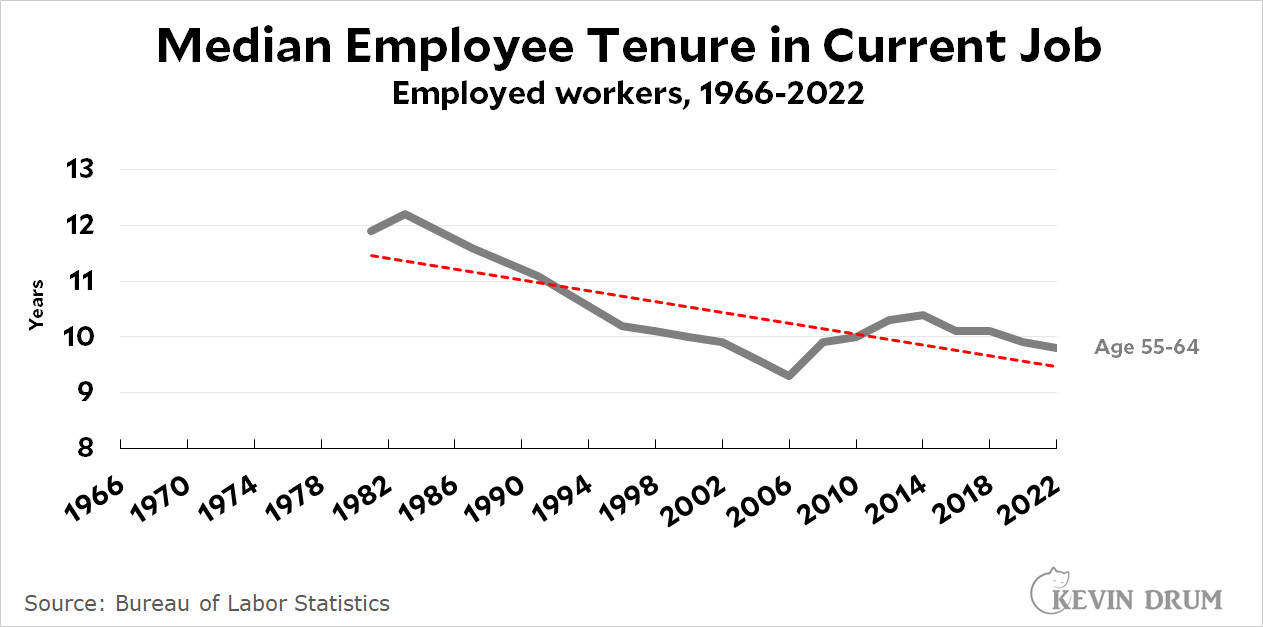Today Paul Krugman discusses a new book by Paul Waldman and Tom Schaller, White Rural Rage: The Threat to American Democracy. In particular, Krugman agrees that rural areas have hemorrhaged jobs, leaving behind a loss of purpose and dignity:
This feeling of a loss of dignity may be worsened because some rural Americans have long seen themselves as more industrious, more patriotic and maybe even morally superior to the denizens of big cities.... In the crudest sense, rural and small-town America is supposed to be filled with hard-working people who adhere to traditional values, not like those degenerate urbanites on welfare, but the economic and social reality doesn’t match this self-image.
Prime working-age men outside metropolitan areas are substantially less likely than their metropolitan counterparts to be employed — not because they’re lazy, but because the jobs just aren’t there.
I'm once again prompted to point out that while this is true, it's not that true. For example, here's the share of full-time workers in urban and rural areas:
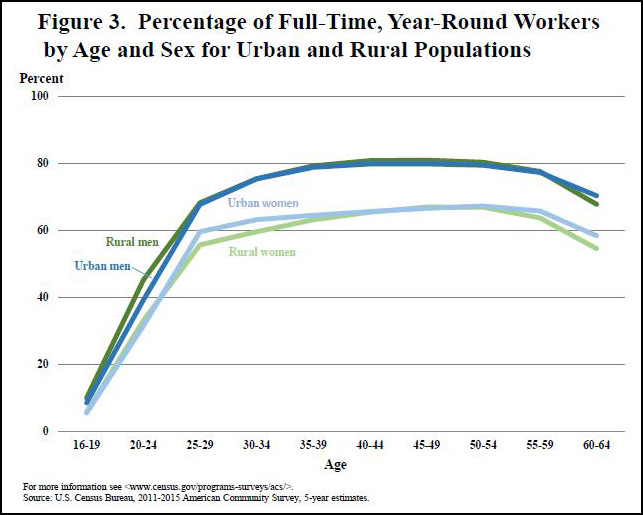 It's almost identical at every age level for both men and women. In both places, about 80% of men and 65% of women have full-time jobs.
It's almost identical at every age level for both men and women. In both places, about 80% of men and 65% of women have full-time jobs.
Here's the overall labor force participation rate:
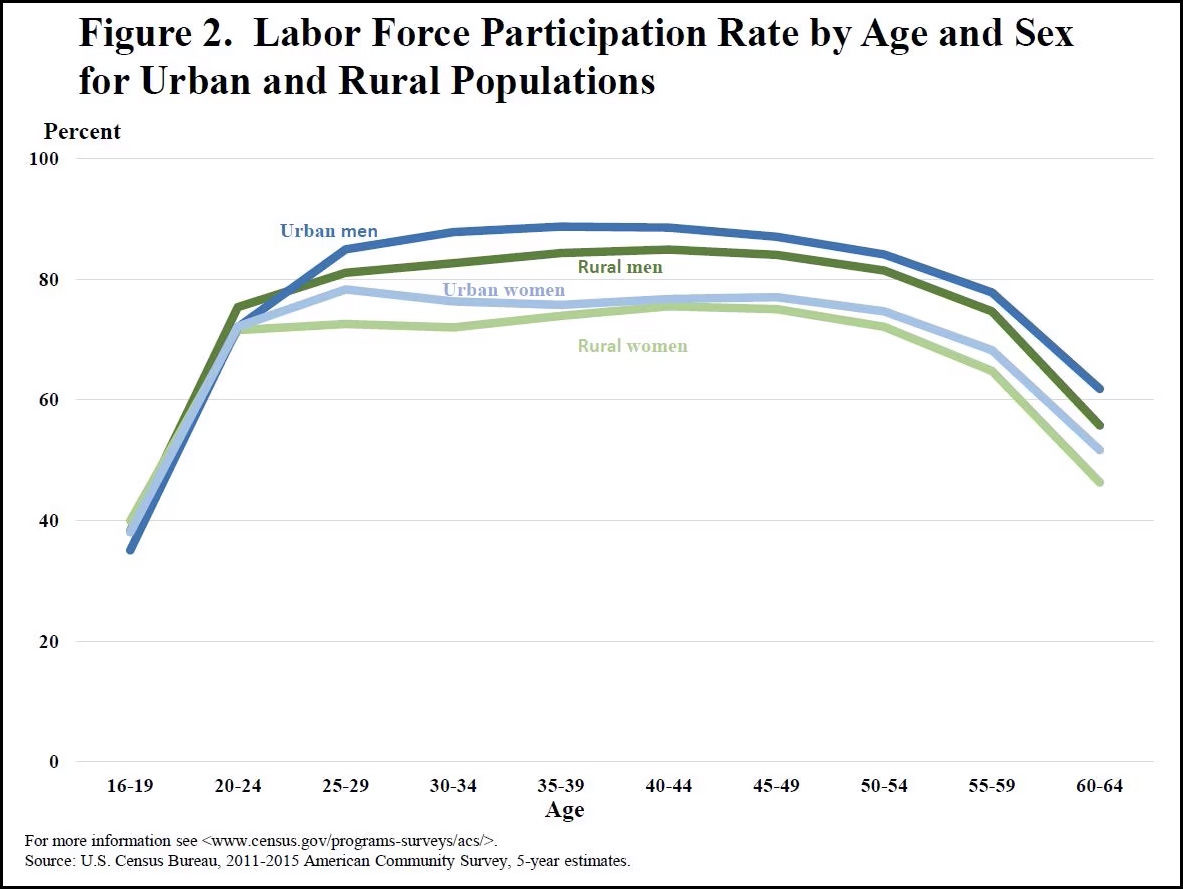 Among prime-age men, the participation rate is about 88% in cities and 85% in the country. The difference is even smaller among women.
Among prime-age men, the participation rate is about 88% in cities and 85% in the country. The difference is even smaller among women.
Now, pay is considerably less in rural areas: the median income for men is about $52,000 compared to $60,000 in cities. However, when you account for the far lower cost of housing in rural areas, a lot of this difference goes away.
These figures are all from 2016, but I don't imagine they've changed a lot since then. More to the point, however, there's nothing new about this. Urban men earn about 15% more than rural men, but the Fed puts the overall urban/rural wage difference in recent years at about 20-23%:
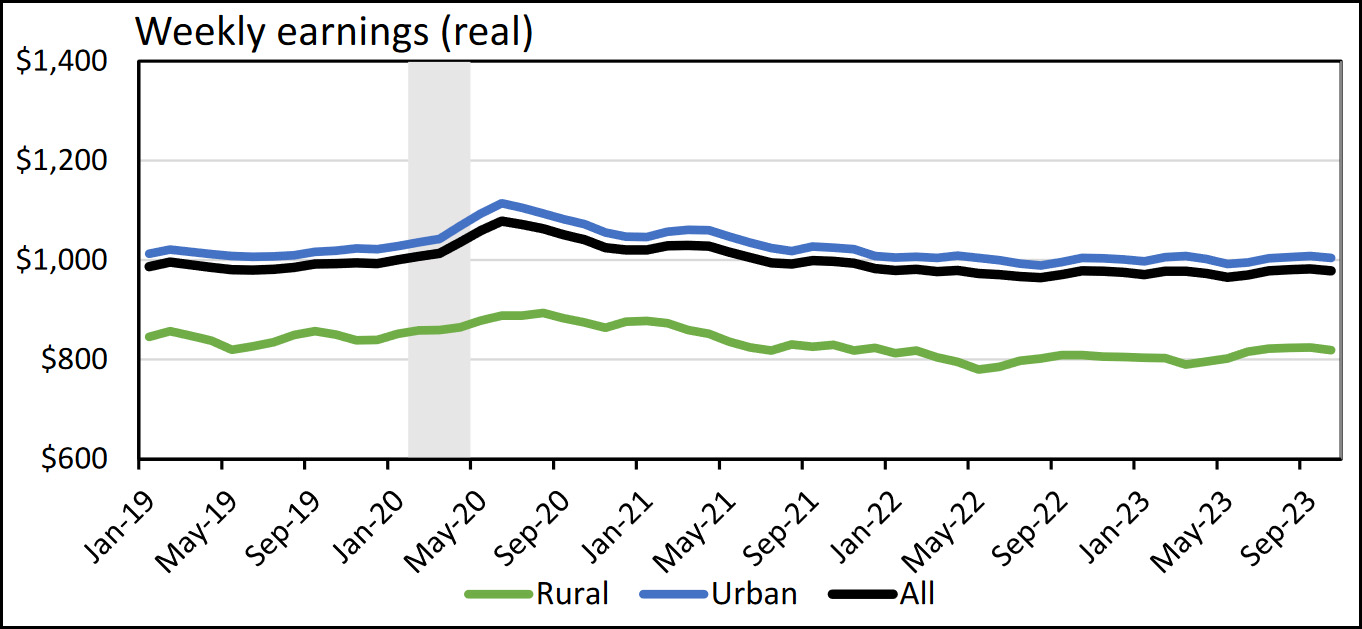 So how does this compare to 40 years ago? In 1980, according to the Census Bureau, median household income was $19,043 in cities and $15,350 in rural areas. That's a difference of.......24%.
So how does this compare to 40 years ago? In 1980, according to the Census Bureau, median household income was $19,043 in cities and $15,350 in rural areas. That's a difference of.......24%.
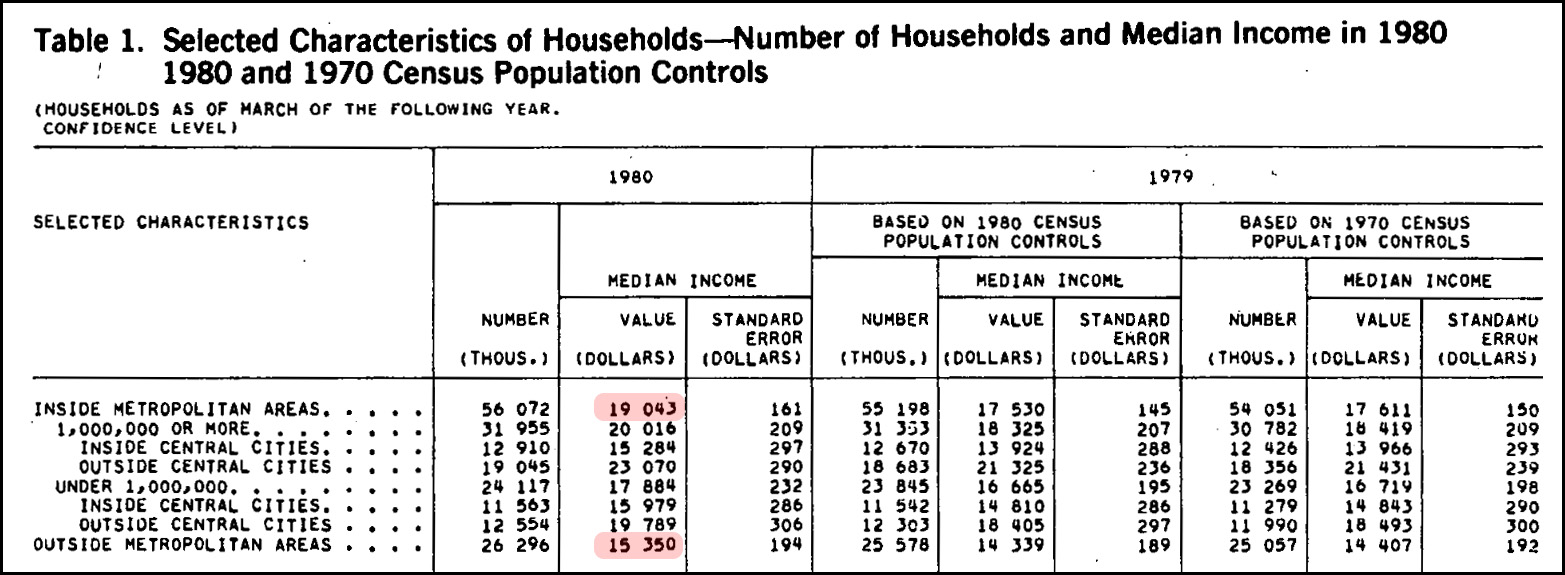 This is a lot of charts and tables to make two simple points. First, the economic difference between urban and rural households isn't as great as people make it out to be, especially when you account for the cost of living. Second, to the extent there really is a difference, it's been around for a long time. City dwellers have always made more money than folks in the country, so this can hardly be the cause of a sudden surge of white rural rage in the Trump era.
This is a lot of charts and tables to make two simple points. First, the economic difference between urban and rural households isn't as great as people make it out to be, especially when you account for the cost of living. Second, to the extent there really is a difference, it's been around for a long time. City dwellers have always made more money than folks in the country, so this can hardly be the cause of a sudden surge of white rural rage in the Trump era.
So what's really going on? I'd guess that part of the answer is economic, but not at the individual level. Main street shops have gone away. Rural hospitals have shut down. The nearest doctor may be 50 miles away. There's no access to broadband internet.
This kind of slow lifestyle deterioration is unquestionably discouraging, but it's not really the sort of thing that produces rage. That's more likely to come from cultural issues like abortion, immigration, race, gay and trans rights, and so forth. I'm still guessing a bit here, but in the past the cultural difference between urban and rural wasn't quite so stark. Mores were relatively conservative everywhere—in public, at least—and in any case, urban debauchery was a long way away. Today it's only as far away as your TV set, and urban culture overwhelms contemporary TV, especially among cable outlets. That can feel pretty oppressive.
Economically, though, I just don't see it. Rural areas today aren't doing any worse than rural areas have always done. The city is where you once went to make your fortune, and it still is.







